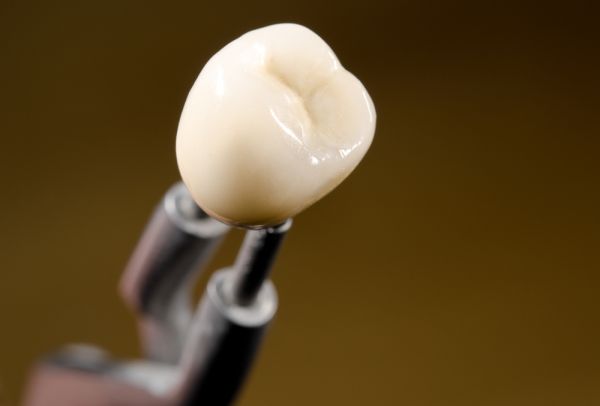FAQs About Dental Crowns

Every year, many people have dental crowns placed to fix all kinds of dental problems. But despite their popularity, crowns are sometimes not very well understood. It is advisable to learn as much as possible about these dental restorations. This will help you make an informed choice when weighing your treatment options.
What is a dental crown?
A dental crown is a cap that dentists often place on a damaged tooth. Crowns perform important functions for tooth and mouth health. Dental crowns can be used to address many dental problems. Here are some important things people need to know before getting crowns.
When is a crown necessary?
A dentist may recommend a crown for a tooth that is cracked, worn down, severely discolored, or badly shaped. Crowns protect weak teeth from breaking or can be used to physically hold together parts of a cracked tooth. Crowns can also cover and support a tooth with a large dental filling. In some cases, crowns are used to cover implants or to hold a dental bridge in place. Crowns may also be ideal for cosmetic reasons.
How long does a crown last?
In most cases, dental crowns last between five and 15 years. The life span of the restoration depends on a myriad of factors. These include the amount of wear and tear it is exposed to and how well an individual follows good oral hygiene practices. Some crowns are sturdier than others and can last longer.
What are the types of dental crowns?
Different types of crowns may be recommended depending on a variety of factors. These include the location of the tooth and its function, position of the gum tissue, or color of the surrounding teeth. The dentist will also consider the patient’s preference and how much natural tooth is remaining. A provider will ensure a dental crown looks natural and fits in the mouth comfortably.
Some common types of crowns include ceramic crowns and porcelain-fused-to-metal crowns. Ceramic crowns are often used to restore front teeth. These crowns are usually used in this area because they can blend with the natural tooth color. This type of crown is usually made of a porcelain-based material. Porcelain-fused-to-metal crowns provide a stronger bond compared to regular porcelain because they are connected to a metal structure. These crowns are durable.
Do patients need to care for a dental crown?
Even though a tooth is crowned, it does not mean that it is protected from gum disease or decay. It is therefore vital for people to continue following good oral hygiene practices. This may include brushing teeth at least two times a day and flossing daily, especially around the area of the crown where the gum meets the tooth. Rinsing with an antibacterial mouthwash as least once every day can also be beneficial.
Visit your dentist today
Crowns serve many important functions and are very effective. Dental crowns are an ideal solution for many different types of dental problems. Crowns can protect the structure of the teeth and offer long-lasting results that look great. To learn more about dental crowns and how they can fix your smile, talk to your dentist today.
Are you considering dental crowns in the Hackensack area? Get more information at https://www.smilebeautification.com.
Check out what others are saying about our services on Yelp: Read our Yelp reviews.
Recent Posts
Dental veneers can improve your dental health. Your dentist can present many types of this dental restoration. Understanding the types of veneers available can broaden your options. Here are the different types of dental veneers that you must consider.These are the most common types of dental veneers. The material in these restorations is feldspar, which…
Dental veneers help patients achieve a picture-perfect smile. However, these wafer-thin shells go over the natural teeth, which begs the question: Are dental veneers comfortable? When installed correctly, veneers feel just like your real teeth. In this article, we will explore veneers, how they work, and how they manage to feel and look natural.Veneers help…
Dental veneers are often more advantageous than other cosmetic dental procedures. Some cosmetic dental procedures are quick but need retreatment. Others need preparation and months to be effective. Veneers take a short time to get but can last for at least a decade with proper care and maintenance. Knowing the benefits of these restorations over…
If you are one of the many individuals who suffer from TMJ, you may be researching the effects Botox® has on this problem. Believe it or not, it can work to help some of the unfortunate aspects of this condition. TMJ can sometimes make everyday activities and simple things we take for granted, like chewing,…


